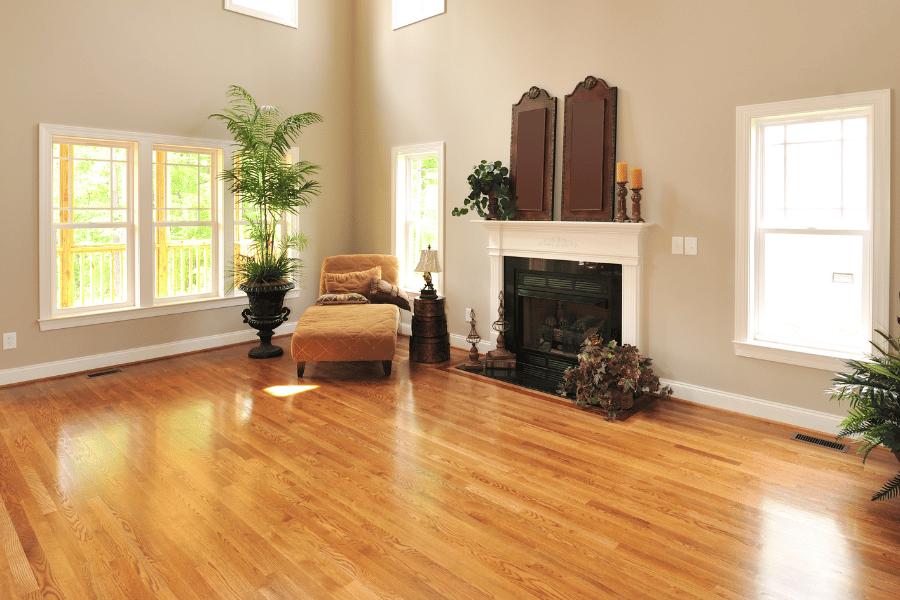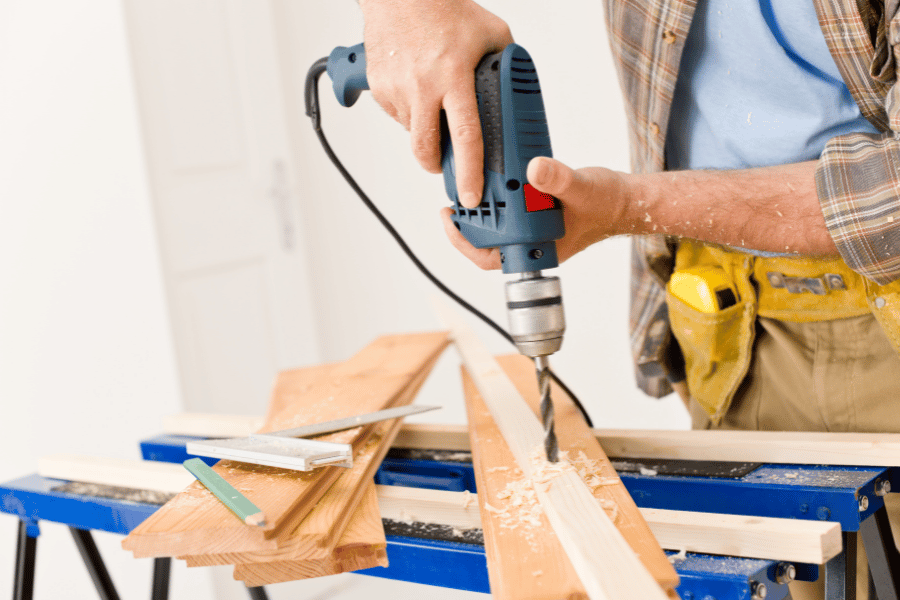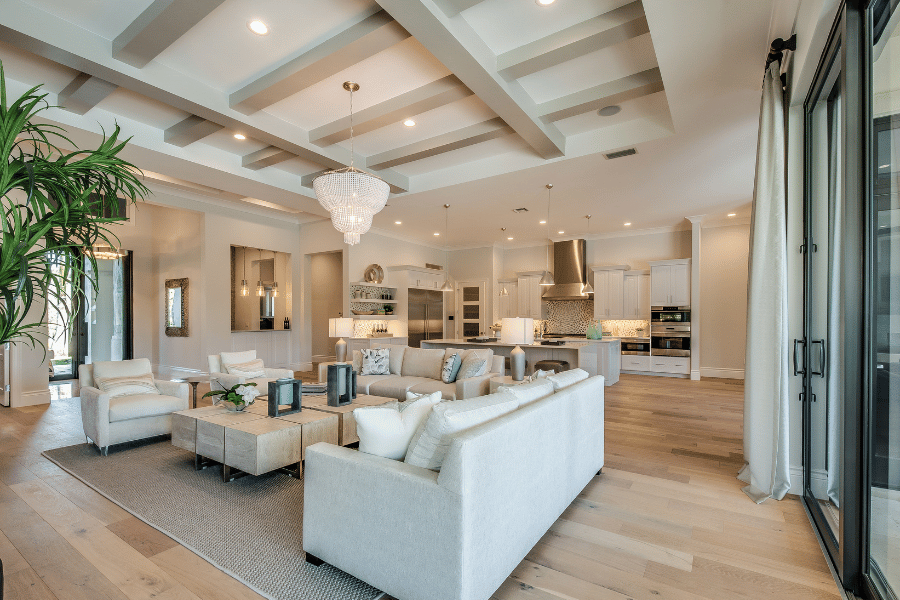Pros and Cons of Installing Hardwood Floors
Hardwood floors are one of the most popular flooring types in homes. However, there are many pros and cons. Here are essential things to know about installing hardwood floors.
Home buying is one of the greatest and most stressful accomplishments. However, it will come with many hard decisions, from home size, location, and decorations to flooring. The flooring type will depend on many factors, but it also has the ability to make or break your space.
If this is your first home, while you look for the best flooring type, you must also consider how it will impact your home's resale value. USA Today says hardwood flooring has the greatest positive impact on home resale value, with an estimated return on investment (ROI) of 118%.
As a result of hardwood flooring's popularity and durability, it may cost more upfront to install and requires a professional. Luckily, there are several types of hardwood flooring to choose from.
You'll need the material to withstand daily use and last for years while also aligning with the aesthetic of your space. Hardwood floors are the most popular choice for many reasons, including their timeless look and durability. Don't just take our word for it; keep reading to learn all the important factors for installing hardwood floors.
Here are the pros and cons to know before installing hardwood floors.
1. Pros: Beauty and Elegance
Hardwood floors are known to be one of the most popular flooring choices in today's homes. According to the National Wood Flooring Association (NWFA), 52% of homeowners have wood floors in their homes. When deciding which type of flooring to buy, 67% of homeowners are looking for durable attributes, 61% for attractive attributes, and 58% for easy-to-clean. Luckily, wood floors have all of these.
The most significant advantage of wood flooring is attractiveness. Few can deny the beauty of hardwood floors, with the ample amount of rich woods and finish colors to choose from. The options of hardwood flooring types are endless.
Oak is the most popular wood flooring for its durability, large color range, and reasonable costs, according to Forbes. The same goes for maple, hickory, and cherry wood flooring. However, everything will vary slightly in price and color.
If you opt for more expensive flooring types like Walnut or Mahogany, it will add more value to the home but will require a lengthy installation process. Most homeowners agree that they would prefer mahogany or walnut flooring in their dream home. No matter which type you choose, it is impossible to argue there is no better flooring if your goal is a beautiful home.
Another advantage of hardwood flooring is its versatility. Most wood flooring types have an inherent natural charm and warmth, perfect no matter how you decorate your home. You can almost always guarantee the wood flooring will match your aesthetic.
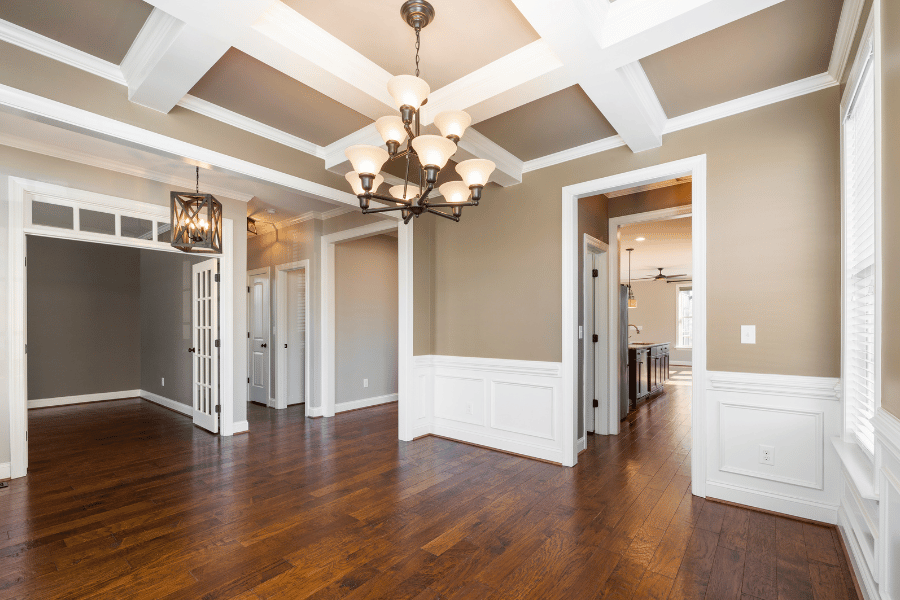
2. Pros: Increased Property Value
It is no secret that wood floor installation comes at a high upfront cost, however, if you look at it as an investment, it is completely worth it. Whether this is your first home or 5th, if you ever think about selling, hardwood floors will add value for resale.
There are several reasons why buyers are attracted to wood floors. Firstly, they are easier to clean compared to other flooring types like carpets. If you have small children or animals who tend to make messes, wood flooring is your best bet. However, you do have to watch out for scratches, whether that be from moving furniture, animals, or children.
A recent study from the National Association of Realtors found that adding new wood flooring can recover 91$ of costs at the time of sale. In other words, the cost of new wood flooring is typically around $5,500, and the increased value for sellers is around $5,000.
If your goal is to sell, over 50% of home buyers are looking for hardwood flooring. This means you'll have an easier time selling your home with hardwood floors than without.
With proper maintenance, hardwood floors can last over 30 years. Additionally, refinishing can further extend this lifespan.
3. Pros: Versatile
Depending on your aesthetic, you're more likely to change the decor in your home than tackle a huge project like floor installation. Wood flooring is great to have because it provides a natural background, that allows for an abundance of decoration looks.
Typically, carpet has to complement the color scheme of a room, but you won't run into this problem with wood floors. Additionally, if you do opt for a different color flooring, hardwood floors can easily be stained to a color that best fits you.
There are a variety of colors and styles that will match many design styles. For example, dark, rich woods like mahogany will create a timeless and elegant style, whereas light-colored woods like maple are best for a clean and minimalistic look.
If you do end up redecorating or want to make some changes, refinishing wood floors can be an easy task. This allows you to stain different colors, depending on how you plan on what you want the home to look like.
Keep in mind that while refreshing wood floors does have a cheaper cost than installation, it will range between $600 and $4,500, according to Angie's List. This price will vary depending on the size of the project, professional costs, and the state of your floors.
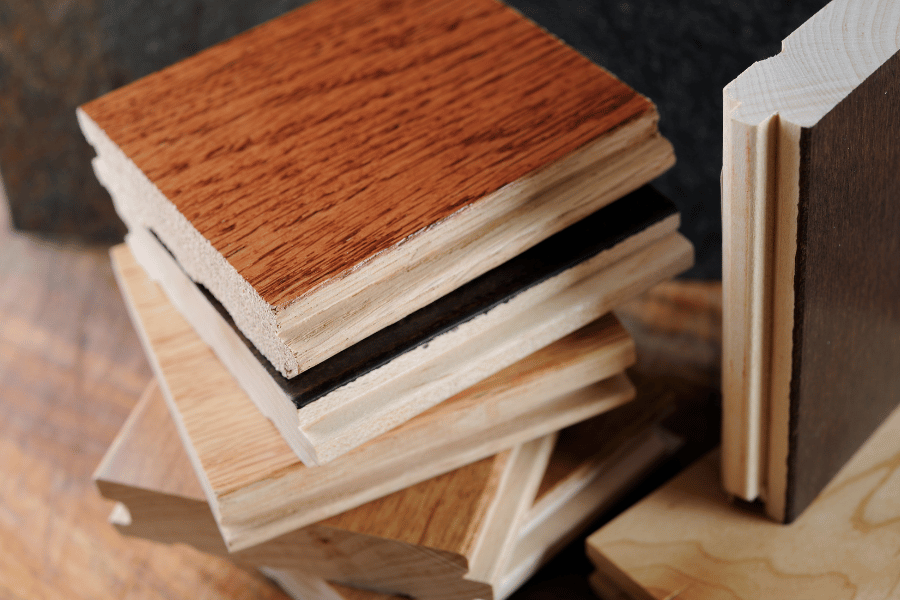
4. Cons: High Maintenance
While hardwood floors can withstand a great deal of damage and are easy to clean, they are susceptible to scratches, water damage, and termite damage. If this is your first time with hardwood floors, you'll need to learn the proper cleaning and maintaining process.
Animals, vacuum bristles, and even grime can cause scratches in high-traffic areas. Minor scratches can be fixed with a simple stain marker; deeper scratches may need to be sanded down and cleaned.
Keep in mind that wood reacts dramatically to temperature and humidity. If you live in a humid environment, keep a lookout for red flags. Try to eliminate the source of water, like leaks, before they create permanent damage. Extremely dry conditions can induce gapping, cracking, and splitting. The best way to counteract this is a humidifier.
Every couple of years, you will have to go back in and refinish the floors. A recoat is the best way to get your floors back to their prime.
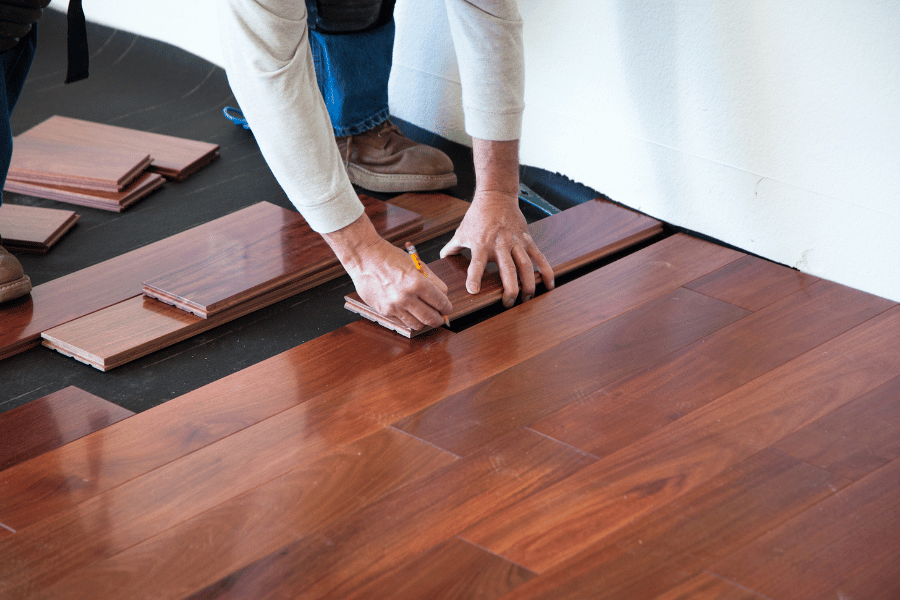
5. Cons: More Expensive
While hardwood floors are one of the most popular flooring types, they can also be the most expensive. This will depend on the type of wood flooring, the size of the room or home, and many other factors.
The following factors determine the price of installing hardwood floors:
- Type of wood: Installation costs will first be determined by the type of wood. Types like maple and oak tend to be less expensive, whereas walnut and cherry are more expensive. Rare and imported wood floors will always be more expensive than domestic hardwoods.
- Size: Most flooring installation projects base the price on square footage along with other factors. The larger the room or home, the more expensive it will be.
- Installation method: There are different ways to install hardwood flooring, some more costly than others. This is why it is vital to obtain quotes from multiple professionals.
- Additional services: Additional costs include floor removal, subfloor replacements, and refinishing. Each additional service will result in a more costly project.
- Labor: Similar to any remodeling, labor costs will make up the bulk of the installation price. This will vary on several factors, including the complexity of installation and experience.
You can cut down on installation prices if you are planning on a DIY hardwood flooring installation. However, you will need extensive knowledge in math, measuring skills, power tools and equipment, cutting boards, expansion gaps, and hardwood flooring installation methods.
6. Cons: Difficulty of Installation
While everyone loves an easy DIY project when trying to save some money unless you are already a professional, floor installation is hard to do on your own. It is a complex and time-consuming process that requires careful measurement and preparation.
We don't recommend trying this on your own at the risk of ending up with uneven floors. This can cost you more money in the long run if it needs to be redone by a professional. Hiring a professional may seem overwhelming, but it will save you many headaches while they bring your dream home to life.
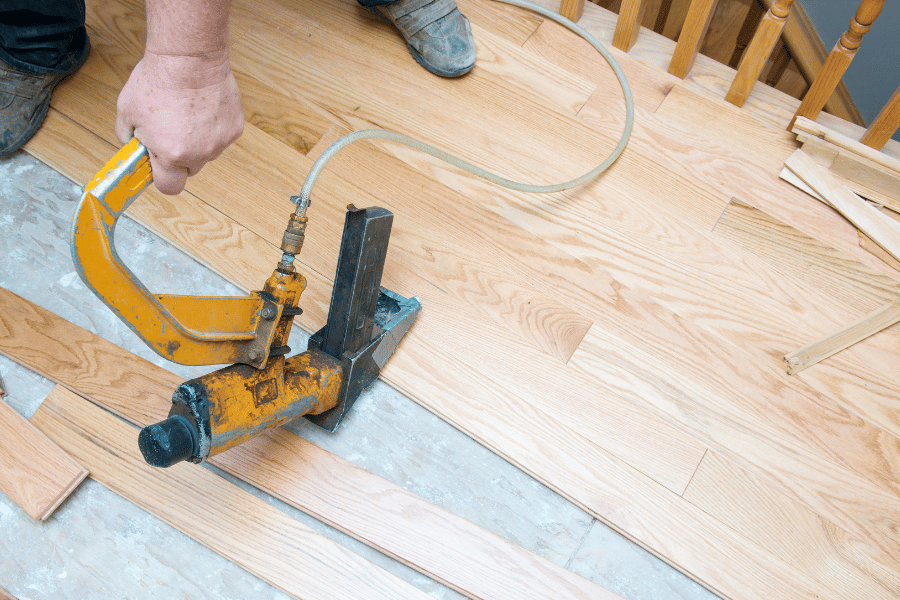
7. Should You Install Hardwood Floors?
A professional hardwood flooring installation will elevate your home and guarantee a beautiful floor for decades. While you can complete the project on your own, it is always best to get a professional's help.
While deciding whether or not it is worth it, it is useful to talk with a real estate agent about how it may impact your home's value. No matter which type of wood flooring you go with, you can rest assured that the finished product will be beautiful.
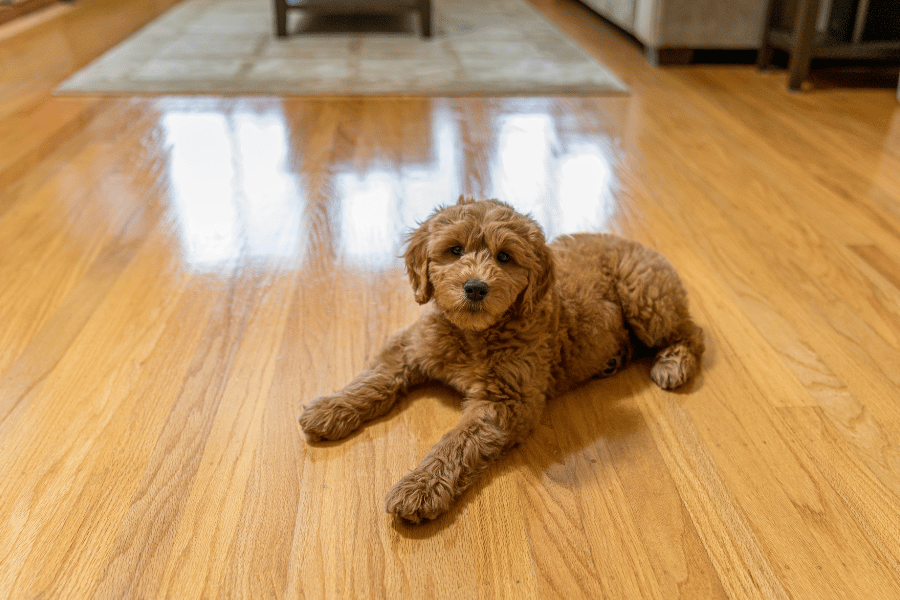
Methodology
We used information and data from several different sources, as well as our own data, to determine everything you need to know about the pros and cons of installing hardwood floors. Most of the data was sourced from the following sources:
- USA Today
- National Wood Flooring Association
- Forbes
FAQ: Pros and Cons of Installing Hardwood Floors
Here are some commonly asked questions about installing hardwood floors.
What is the downside of wood flooring?
While hardwood flooring may look beautiful, it is very sensitive to moisture. This means if you have children who may cause spills or live in a humid environment, hardwood flooring may not be the best choice. If you do opt for hardwood floors, you must ensure any spills are cleaned up straight away.
Where not to install hardwood floors?
Because hardwood is sensitive to humidity, don't install it in places prone to water damage or leaks, such as bathrooms, basements, and kitchens.
What do you put under hardwood floors?
Most underlayment consists of rubber, foam, felt, or cork. Each one has different qualities depending on the needs of the floors and room. Choosing the right underlayment will improve your flooring, assist with soundproofing, and help it last longer under certain conditions.
What flooring looks the most expensive?
The most expensive-looking flooring includes natural stone, distressed hardwood, exotic hardwood, luxury vinyl plank, and mosaic ceramic tile.
What flooring will increase home value?
Similarly to most home upgrades, the more expensive flooring will yield the highest returns and appeal to homebuyers. Hardwood flooring is one of the most popular choices, followed by engineered hardwood and tile. All three will increase home value and attract more buyers.
Installing Hardwood Floors - The Bottom Line
If you are choosing the flooring type based solely on aesthetics, then hardwood floors will most likely be the best pick. However, there are many other considerations, including maintenance, price, family, and lifestyle.
The cons, like high maintenance and cost, may seem daunting, but as long as you take good care of your home, it is all worth it. There are also many ways to protect hardwood flooring from harm, including decorative rugs, scratch-resistant coating, and furniture pads. Installing hardwood floors typically requires a professional, which may increase costs. Be sure to get multiple quotes to secure the best deal.
When it comes time to sell your home, the type of floor you have can impact the home's value. This means you may be able to sell it for more than you bought it for after redoing the floor.
If you are thinking about relocating, Raleigh, NC, is a great option for a fresh start. As you search through Raleigh's best neighborhoods, feel free to contact one of our helpful real estate specialists, as they are eager to help you find the perfect location. We know that investing can be overwhelming, but a real estate agent can walk you through the entire process.
